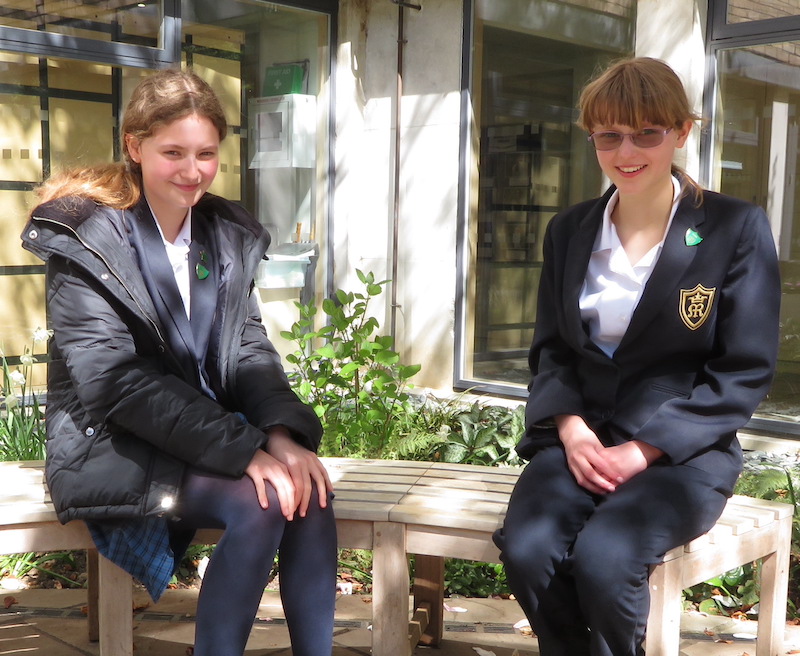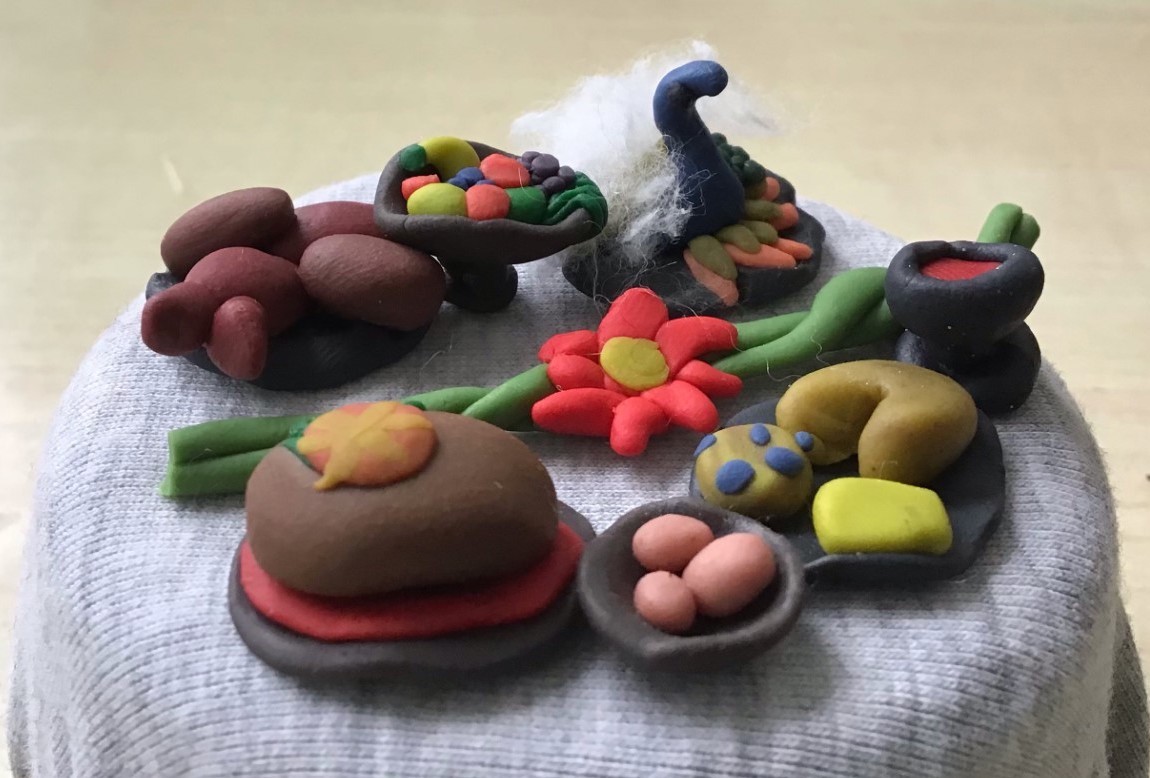Classics in the Senior School and Sixth Form
A highlight for us in Classics is seeing students become so engaged in their study that they investigate further and learn more on their own initiative.
The myths of the Greeks and Romans and stories of their gods are always fascinating, and Year 10 Classical Civilisation students have thrown themselves into learning about them. I have greatly enjoyed lessons beginning with them announcing another obscure fact they have found out about Zeus’ misbehaviour, or the relationships between the gods.
They also used their dramatic skills to full effect when they created a play based on the myth of the contest of Athena and Poseidon which led to the naming of Athens; the gods were brilliantly characterised and the performances were very memorable!
We have long been proud of our Greek outreach project which gives students from St Mary’s and St Bede’s the chance to study Ancient Greek together in an after-school class. The students work very hard to reach GCSE standard in two years, learning how to translate Greek passages, studying Ancient Greek society through primary sources and appreciating Greek literature. This year the lessons were even more demanding than usual – due to the inability to mix year group and school bubbles all the classes have been taught remotely; at first via pre-recorded lessons, later as live classes.
We are particularly delighted that Maja S., who took GCSE Greek two years ago, was so inspired that she independently learnt Latin to GCSE standard. She is now in Year 13 studying Latin and Greek with us at A Level; she intends to read Classics at university next year and has received an offer from the University of Cambridge.
Cambridge Classical Association Reading
Every year St Mary’s participates in the Cambridge Classical Association Reading competition. This year we feared it would be unable to take place but fortunately, the competition was adapted to run remotely and in fact, there were a record number of entries in the Junior category. Students from local schools compete by reading aloud a passage of Latin and are judged on the accuracy of their pronunciation and the clarity and expressiveness of their reading
 Marina B-R. (pictured above) in Year 10 was awarded first prize in the Intermediate Latin reading competition and Emily L. and Victoria L. (pictured right) in Year 9 were both awarded highly commended prizes in the Junior Latin reading competition.
Marina B-R. (pictured above) in Year 10 was awarded first prize in the Intermediate Latin reading competition and Emily L. and Victoria L. (pictured right) in Year 9 were both awarded highly commended prizes in the Junior Latin reading competition.
Newnham College Classics Essay
Another example of outstanding work was Eliza M.’s essay for the Newnham College Classics essay competition – she answered a question about whether comparisons with past Roman emperors and other ancient leaders help or hinder our understanding of contemporary political events. Eliza researched this topic deeply and wrote thoughtfully on varied areas for comparison, reflecting on the coronavirus pandemic and comparing it to the Antonine plague which afflicted the world in 165-180CE and comparing the attack on the US Capitol Building with the burning of the Roman Curia by supporters of the populist politician Publius Clodius Pulcher.
Read Eliza's brilliant essay
She demonstrated a nuanced understanding of the differences between ancient and modern societies and the potential benefits and perils of the parallels that can be made.
Creativity in Classics
During the period of remote learning in the Spring Term we wanted to give our Year 7 Latin students an opportunity to demonstrate their creativity; they spent a week of lessons completing projects of their choice on an aspect of our course which interested them. We saw their wonderful inventiveness – use of family members dressed up as Romans, Latin words made from household objects, minecraft and digital artwork creations.
 Eva G. created a fantastic mini Roman feast out of playdough and talked the class through her research. We were particularly impressed by her recreation of the carbonised loaf of bread found in Pompeii, the poculum (cup) of wine - a Roman essential - and the main course of peacock; this cena (dinner) was clearly a special occasion!
Eva G. created a fantastic mini Roman feast out of playdough and talked the class through her research. We were particularly impressed by her recreation of the carbonised loaf of bread found in Pompeii, the poculum (cup) of wine - a Roman essential - and the main course of peacock; this cena (dinner) was clearly a special occasion!
High Performance Learning
The students have adapted fantastically to deal with remote learning and hybrid learning. They have put our HPL attributes into practice, demonstrating skills in enquiry, perseverance, practice and resilience among others. This has been particularly essential in Greek, where the students had to be very self-motivated and take initiative to make sure they fully understood each topic. Students are also proactively seeking and responding to feedback.
Several years ago I made a revision booklet for GCSE Latin and included some light-hearted encouraging quotes to motivate them if their energy flagged (Latin can always be relied upon for an apt motto or inspirational phrase!). Several can be applicable to the changes in life and learning we have experienced – in particular:
‘per ardua ad astra’ (through difficulties to the stars)
‘perfer et obdura; dolor hic tibi proderit olim’ (Be patient and tough; some day this pain will be useful to you)
We have had to go through difficulties and pain this year but it has been so lovely to be back in school with the students and to see how much they have developed skills that will be useful to them – greater independent learning habits, confidence in technology - and an appreciation of simply being together with others.
Mrs Lyon
Return to Magnolian 2021